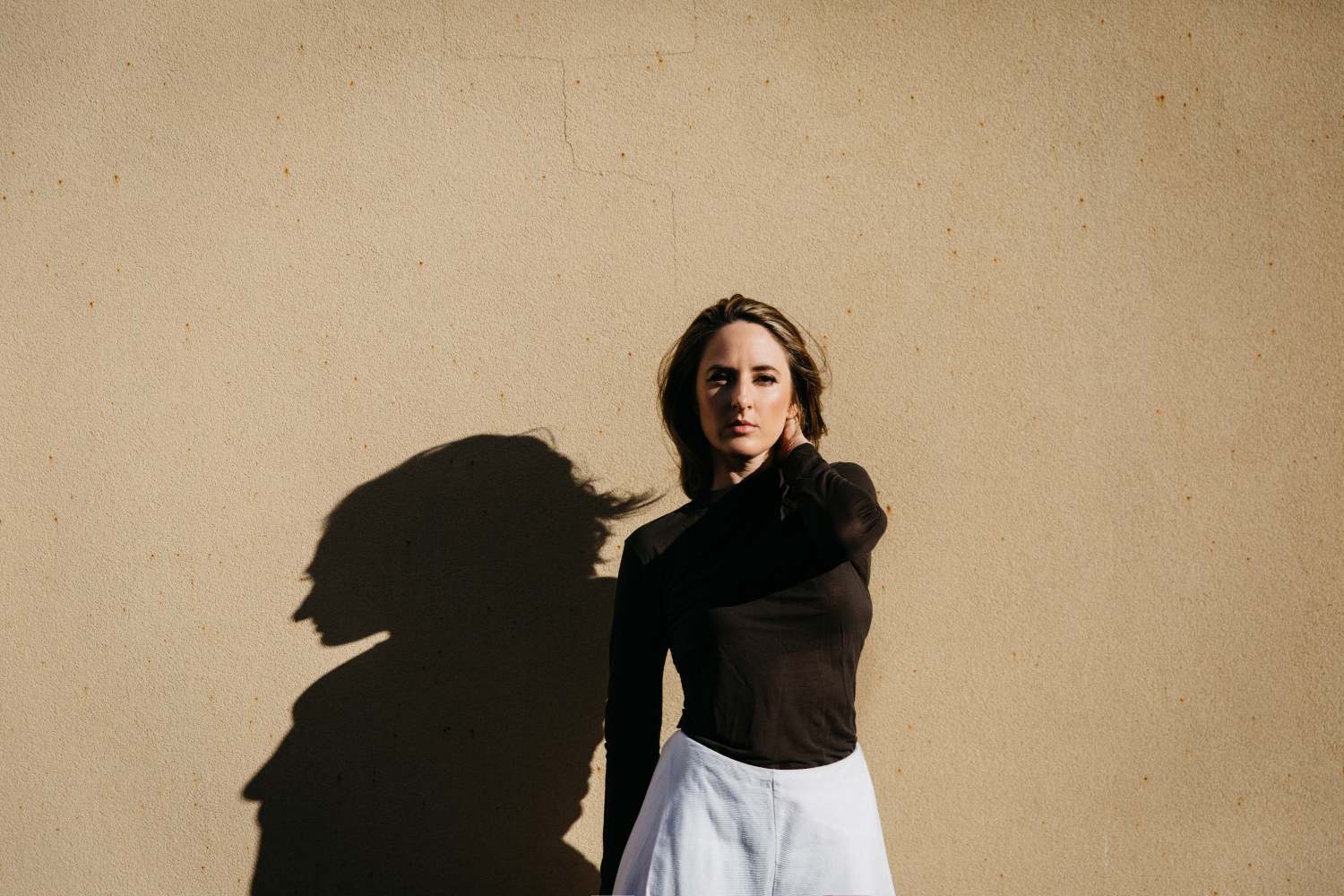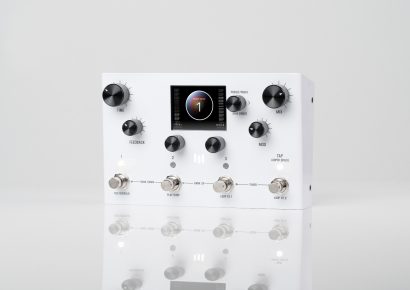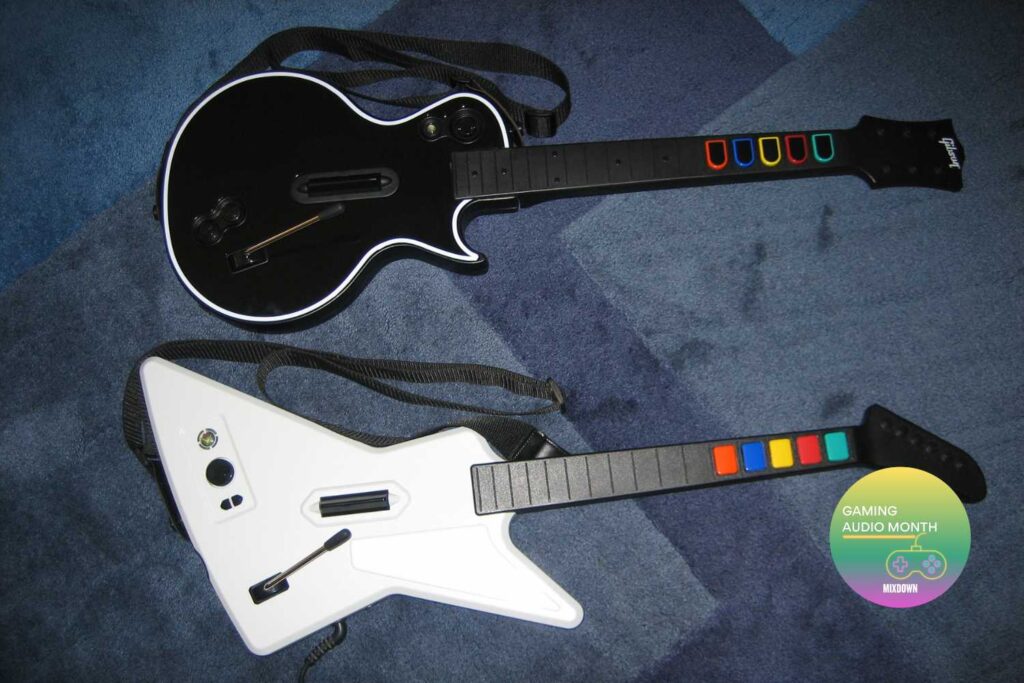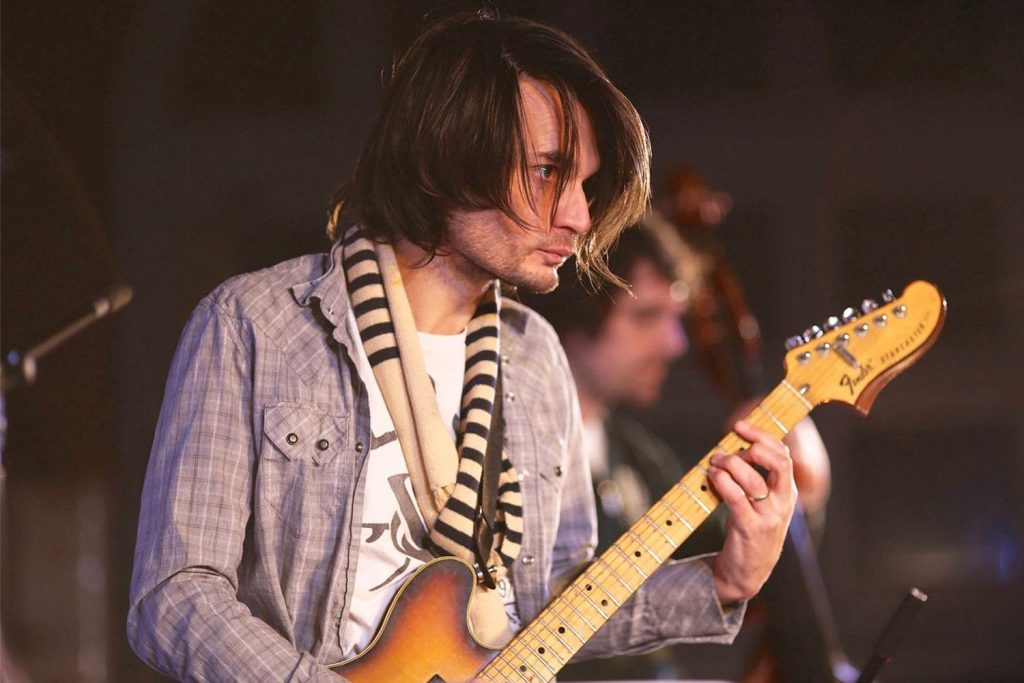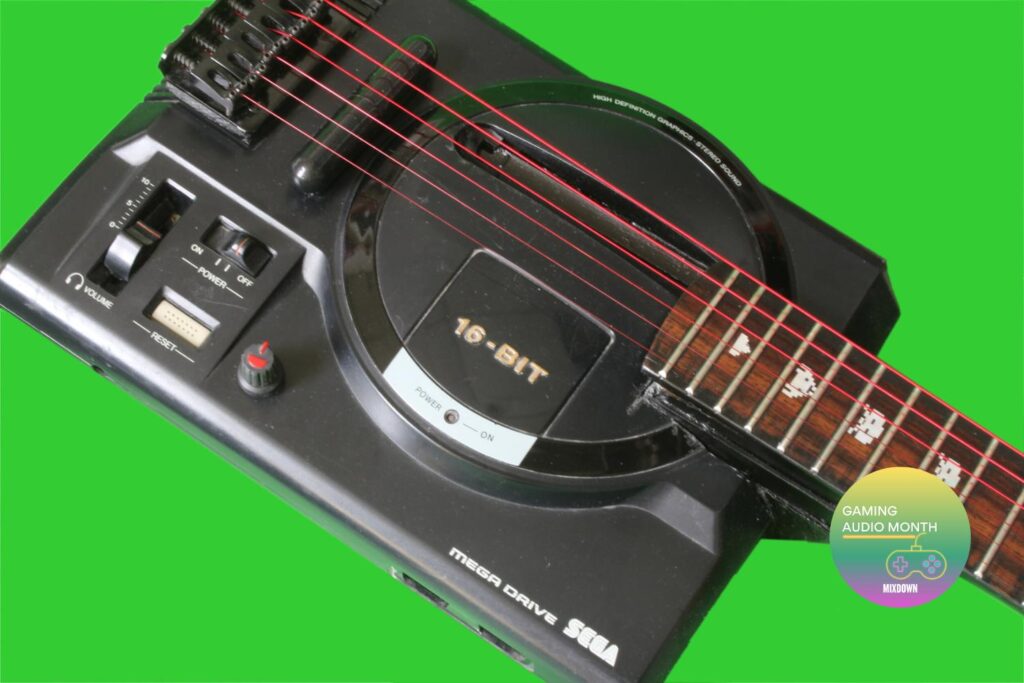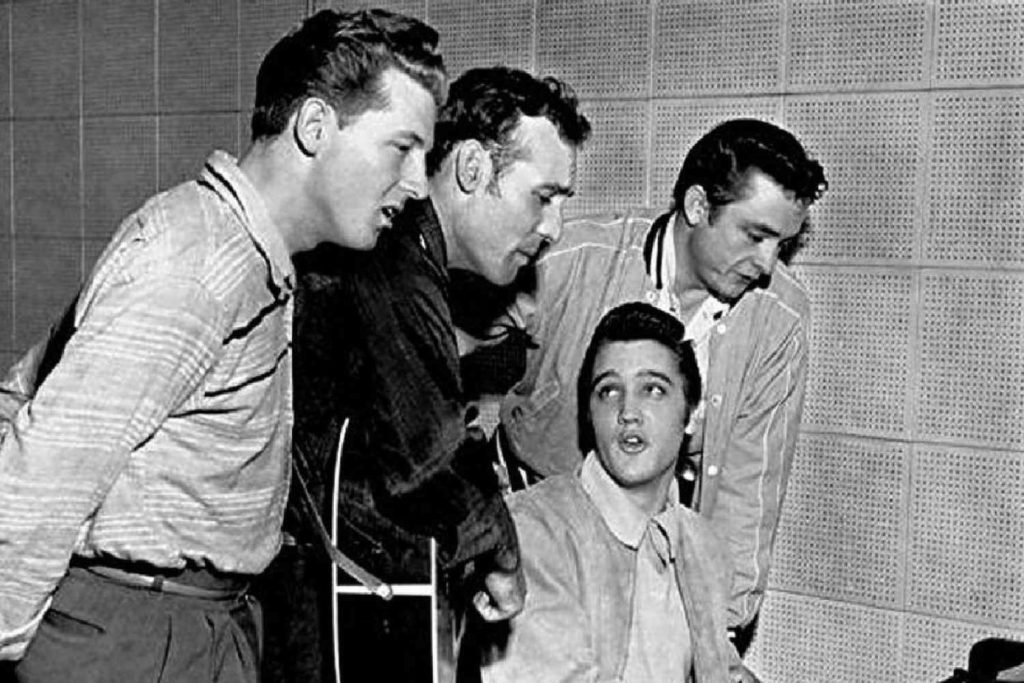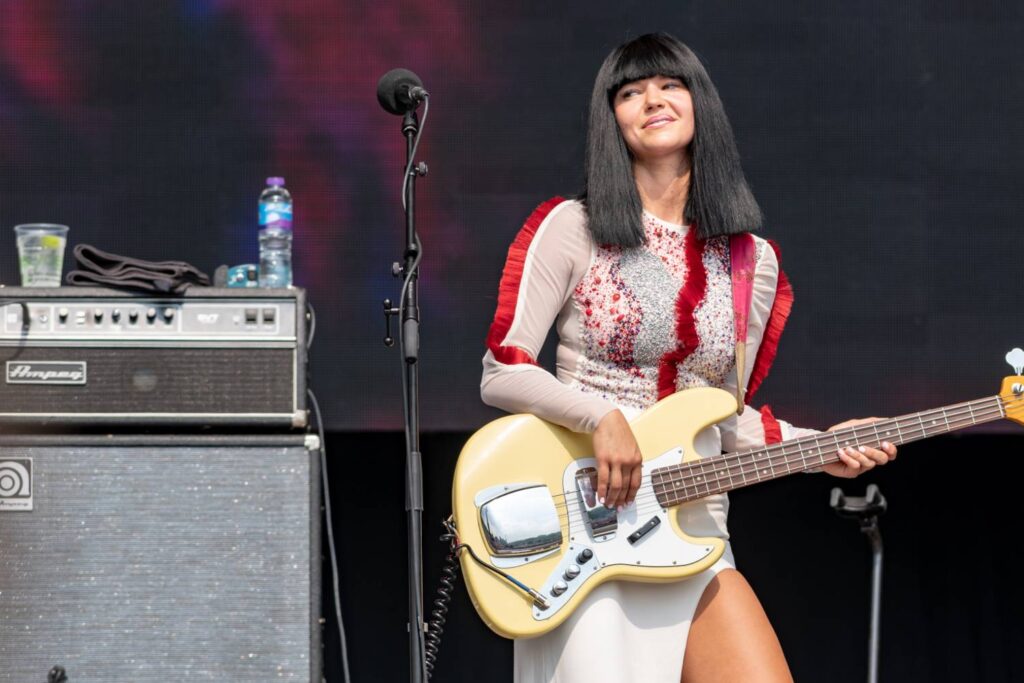Producer, songwriter, bandmember, solo artist – Beatrice is a force to be reckoned with
Her output includes music with the indigenous group Kardajala Kirridarra, electro pop insurrectionists Haiku Hands, synth rock outfit Sky City Gold, and solo releases under the moniker, Beatrice. It’s a rap sheet that’s exhausting to read, let alone produce. We sat down and asked Beatrice directly, “How do you do it?”
First, we discuss Beatrice’s upbringing and path to music. Beatrice’s immediate family were involved in the visual arts focus as teachers and interior designers. After an early childhood spent in the Dandenongs, Beatrice attended primary school in Melbourne, then high school in Wagga Wagga. She had lessons on piano, voice, and guitar but “never really mastered one of them. I was always just playing around on each,” she says.
Read up on all the latest interviews, features and columns here.
Straight out of high school, Beatrice moved back to Melbourne to obtain a Bachelor of International Relations, focussing on human rights development, then worked with Australian Volunteers International in the Philippines. During this time, Beatrice explains, “I worked on this amazing theatre project with some street kids that toured around Philippines. During the tour I realised, music is way more empowering than politics. So, when I returned to Australia, I studied contemporary and jazz singing at NMIT, in Melbourne.”
The study load and student life led to cysts on her vocal cords. Never one to let adversity get in her way, Beatrice picked up the ‘cello and experimented with the sound design possibilities of guitar effects pedals. When a friend suggested she try Ableton Live, a watershed moment occurred, “I tried it, and that was the end! All the effects are in there. It completely changed my direction. For a long time I just explored sound and soundscapes. Experimenting with huge reverb decays and delay tails.”
The study led to opportunities to live and work in Alice Springs and surrounding remote Aboriginal communities with the Sista Sounds program (introductory music development workshops for Indigenous women and girls). The programs focussed on music as well as digital literacy and created a space for the participants to explore creativity. Reflecting on the experience she explains, “It was skill development for participants but also skill swapping. We’d hang out with the female elders, and they’d take us out and teach us. It actually felt like an exchange, where they would share so much amazing knowledge. I feel strange saying that I went out to teach something because in the end, I learnt way more than I taught.”
This time in Central Australia led to a collaboration with singer Eleanor Dixon that would become the act, Kardajalla Kirridarra.
“I would go to Marlinja which is where Eleanor lives. We’d set up a portable studio using Ableton Live, an audio interface and a nice microphone in an old doctor’s surgery room. We’d write in English and then translate into her language, Mudburra.” Beatrice continues, “Her voice is so beautiful. Touching. There’s just so much in it. It quickly became the focus. We’d record layers of her voice, then chop it up and put it into Simpler (one of Ableton’s native sampler intsruments) and bring it all together. She’d improvise, and then I would edit like mad. I feel that I’m a different producer now because of the experience. I can hear the limitations of those songs, but I really like what we did within those limitations.”
Beatrice talks further about Ableton as a song writing tool, “I have this feeling, when I work or teach with Ableton, that everyone uses it in a different way. It’s so malleable. It can be so fluid once you know the software. It blows my mind when I sit down with someone to do a session in Ableton. I’m watching, thinking, ‘Oh my god. I never thought about doing that,’ which is amazing, because I use it all the time!” The Kardaljalla Kirridarra project evolved over three years and has seen a number of successful releases come to light, and many live performances.
The conversation shifts towards another of Beatrice’s projects, the chaotic all-girl, electro-pop outfit, Haiku Hands. “We have three core members; myself, Claire, and Mie, who are sisters. We all write and sing.” The first tracks were written with a friend, Joel Maher. From there, they wrote an album worth of material with Angus Stuart taking the role of producer. “For the first album, Joel and Angus were very much a part of the group. That’s changing for the second album. We write more independently. I just love writing [with Haiku Hands]. It’s so much fun. We laugh a lot as there’s a kind of absurdity to the songs, a Dada influence. It allows me to express a whole other side to my personality.” The first single, ‘Not About You’, was released independently and it “went bananas!”
Beatrice was DJing for Joel’s act as an MC which helped her gain label interest from the label he was on, Elephant Tracks, and the momentum began to accelerate with more releases. Beatrice relates an anecdote from when she studied at the Red Bull Music Academy. “When I went to there in 2017, we all had to sit on the couch and play our music to everyone. The next thing I knew, everyone in the auditorium jumped up and started moving to our track ‘Manbitch’. I was so happy that it touched people, internationally. The humour. The tongue in cheek vibe. It worked!”
While the music and lyrics of Haiku Hands are deeply humorous, Beatrice goes on to point out that it’s a “really political band, just not didactic. The activism is in the act of being a really of being a really outspoken, empowered and raucous woman. Our shows are mayhem, and that creates a sense of freedom for us and the audience, where we all become greater than that sum of our parts, as we create this whirlpool together. Haiku Hands seeks to validate the audience’s experience in whatever identity they arrive.”
As a woman, Beatrice strongly believes that to implement change, you need to the be that change. Through music, she seeks to inspire young women to step out of traditional roles to create, question, and take the role of self-determination back from others. “I remember the first time I saw a female DJ. I had just moved back to Melbourne and just never thought that could be a life choice for me. It changed my life. I thought, ‘Oh my god! I wanna do that!’ I waited outside to meet her. Carried her vinyl to the taxi and asked, ‘How do you do it?!’
As a performer Beatrice gratefully acknowledges her shift from influenced, to influencer, and recounts Haiku Hands’ performance at WOMADelaide in 2022. “It was such a cool show. It felt like some kind of portal opened up. So many young girls were in the audience, and they were really touched by what we doing. Music has changed my life in so many ways and it can be a support and… changes lives! When soldiers march together in time, they can march for twice as long. If we’re collectively connected, we can do so much more.”
View this post on Instagram
We pivot to talk about the genesis of the band, Sky City Gold. “I remember with Haiku Hands, we were playing at South by Southwest in the states. I just loved the power and energy of the live bands and the rawness of live drums. It was incredible. So, when I returned from tour, I started jamming with Joel and another friend on drums, Tom. Just for the sake of it, and then over the lockdown periods we sent ideas back and forth and started to write some really cool songs. Next thing I know, Spinning Top records is releasing our music!”
Sky City Gold melds a host of genres to produce a filmic synth laden sound that while not pop, remains poppy and at the same time is not rock, but still rocks. Beatrice goes on to explain, “It’s the first time that I’ve really sung and produced lyric-based songs.”
When asked about her favourite tools to create, aside from Ableton Live, Beatrice rattles off a list of plugins and tech that she uses to craft her sound. “I love all the FabFilter stuff. I use the Pro-Q (EQ) all the time. I’m really into the UAD plugins as well. Particularly when I’m working on Sky City Gold, I use a lot of different distortion effects. I love the Capital Chambers reverb. It’s based on the reverb chambers of Capital Studios in L.A. It sounds really beautiful. It’s like you’re there in the room!
“But for me, there’s two ways that I approach effects. On one hand, I use them as an editing tool, and then there’s the creative use. Resampling reverbs, chopping it all up, and using a sampler to create pad instruments.”
We talk further about the difficulty of finishing and releasing material as a solo artist compared to working with others. “It’s funny. Working with Haiku Hands, Sky City Gold, or Kardajalla Kirridarra, they’re projects where: A) I’m working with other people, and B) Part of the ethos of the bands is the freedom to release music. With my solo work as Beatrice, it’s so much more insular. It feels a lot more introverted, personal, and vulnerable.”
She touches on the topic of self-criticism and being comfortable with her release. Although wildly prolific, Beatrice reveals that she has so much music that she has shelved because thought it just wasn’t good enough. “I remember listening to a Nick Cave talk where he talked of, ‘Just putting stuff out!’ He is so prolific but never listens to his music after it’s released. Anything he regrets about an album, he lets go and does it on the next.”
Perhaps critically, Beatrice reflects, “I’ve got three albums of Beatrice stuff that I’ve never put out. I could have been releasing these in the 2000s but never did. I don’t think that I’ll revisit them, but you never know, life is long.”
Having already secured a funding grant to produce and release the next Beatrice album, she explains, “I’m curious to see how I go writing it and putting it out next year. It’s almost nice to go back into the ‘why?’ of creativity, which is a dual thing. It’s partially for me. For my own processing of life but then I also think that my life’s purpose, not so much the political side of what I do, is a need to contribute in some way. If I can find a way to contribute [to society], it’s a really good feeling.”
This drive to create was strengthened during the COVID lockdowns. “After those lockdowns we did a small tour with Haiku Hands in April and May of 2021. I was so nervous before going on stage. I felt nauseous. Like I was going to vomit. Then when we ran out on stage, I felt so elated! I know it sounds a bit dorky, but I felt ‘This is my purpose. THIS IS MY PURPOSE!’ It was a such a strong feeling. Again, it’s this internal thing, how I process life, the desire to contribute to something bigger.”
Talking further about live performance, Beatrice explains “The culture in the band and the culture in the audience, becomes one thing. Whatever’s going on musically is reflected in the crowd, emotionally.”
View this post on Instagram
As our conversation comes to a close, we speak about how it is she keeps on top of it all. From recording to writing, teaching preparation to managing the day to day, Beatrice’s output is undeniable. Fresh home from three shows, in three states, plus a recording session across, I ask if there are days when it all becomes too hard. “Hah! That day is today!
“I have to record some vocals for the next Haiku Hands single as well as look at some latency issues in my Ableton Set for Sky City Gold. There’s teaching and I have to make time for a call regarding an upcoming funding grant I’d like to apply for. I can’t do all that today, so I’ll step back and plan it out. I’ll call Claire from Haiku and find out when she’s doing her vocals to see if I can do it tomorrow when my voice will be better rested. I’ll do lesson plans today as I can do that from bed. Same with the latency issues. Over time I’ve become more aware of my energy levels and when I can work. I’ve tried so many times to push through. Sometimes it works and sometimes it doesn’t. It’s really about ‘knowing yourself’.
“After this interview I’ll go cook breakfast because I know my brain will be in a better state to talk through that grant if I do that first. Previously, I would have gotten off the phone and made the call for the grant, running on adrenaline. Moving really quickly. I’m trying to be more energetically aware. Asking, ‘What do I need right now, so that I can make the best art?’ That might mean pushing through, or stopping to have a shower. I have to be very selective with my energy, which in a way is a good thing.”
In passing, Beatrice mentions that meditation has also helped her become more settled and accept that after intense energy expenditure, “It’s ok to go slow, even though there’s a million things to do, I want to do them all properly. I want to enjoy my life. I’m not into stress anymore. I’m into making music.”
A goal, for all intents and purposes, she is achieving, and then some.
